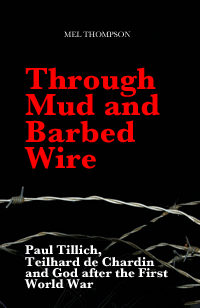Thought Experiments in Ethics
 Fed up with diverting trolleys, pushing fat men off bridges or killing one hostage to save twenty? Not sure whether you are prepared to be medically hooked up to a famous violinist for nine months or whether that pig really does want to be eaten? Thought experiments have become an common feature of ethical arguments, but how should we treat them and what are their limitations?
Fed up with diverting trolleys, pushing fat men off bridges or killing one hostage to save twenty? Not sure whether you are prepared to be medically hooked up to a famous violinist for nine months or whether that pig really does want to be eaten? Thought experiments have become an common feature of ethical arguments, but how should we treat them and what are their limitations?
Here is the draft text of a talk, given by Richard Baron in June 2017, on this fascinating topic. He has given permission for it to be shared, but if you want to quote from it or cite it, you should get his permission first. You can contact him on richard.baron789@gmail.com.
To open up the pdf file, click here.
And, as a modest supplement to Richard Baron's article, here are my earlier thoughts on thought experiments?
Off your trolley? Why I’m seldom persuaded by thought experiments.
I know they are popular and great at engaging people’s interest in ethical issues, but I’m getting rather fed up with trolleys, railway lines, fat men, famous violinists and animals that want to be eaten. In my view, there is a danger that thought experiments will diminish rather than expand our ability to think creatively. Let me explain why…
In science, experiments are constructed in order to eliminate all but a very small number of variables, so that they can be measured and compared. The more subtle the variables to be measured, the more important it is to eliminate anything that could produce a false reading. If I’m interested in the size of apples related to the conditions under which they are grown, I ignore their colour; if colour interests me, I ignore their size. But each apple has both colour and size; each apple is unique. The uniqueness of that apple has to be set aside if experiments are to yield scientific theories about apple growth.
An experiment is therefore, by its very nature, unnatural. And this applies especially to human choices and moral dilemmas. In real life with have what Heidegger called the ‘infinite background’ problem; at any one time, the number of influences upon us, along with the influences that influence the things that influence us (!) stretch out infinitely. What is more, we are thrown into a set of circumstances not of our own choosing, and need to make sense of our world on that basis.
We never encounter the kind of situation that is presented in a thought experiment, simply because – in order that the thought experiment could be realistic in reflecting actual life choices – it would need to have an infinite number of personal circumstances attached to it. Thought experiments therefore yield general principles (I’d rather kill one person than five), never explain or guide any one individual to make his or her choice on that particular occasion. There is an additional danger that, once the results of a thought experiment are tabulated, philosophy starts to descend into statistics and merely relates that, give the choice, 60% opt for one thing and 40% for the other – statistics that simply point to how people respond to being asked a particular question in a particular way. I’m far from persuaded that statistics of this sort contribute much to ethical debate.
At the time of writing, the news is filled with the responses to an inquest into the shooting of a young black man by police on the streets of North London. The inquest came to the conclusion that he was lawfully killed. But the situation was extremely complicated. The young man was black, raising issues of racism. Would the police have been equally ready to shoot if here were white? He was a known criminal and was in possession of a firearm at the time. To what extent does the fact that the police had reason to believe he was armed influence the actually pulling of the trigger in the moment of confrontation? Did he point the gun towards police, or did he throw it away as he stepped from the taxi? Is raising a gun to throw it an action that could be misinterpreted as raising it to fire? I need not go into details – they are complex and have involved months of investigation and weeks of inquest hearings. Can you imagine the thought experiment that might be constructed from such an incident? It would suggest that the decision to shoot was binary. In situation ‘X’ do you or do you not shoot? What principle should apply in that situation?
Now it is clear that there are principles involved: the police are only permitted to shoot if their lives or those of others are directly threatened; the colour of the suspect should be irrelevant. And such general moral and legal principles can be illustrated by means of thought experiments. But principles, however valid in themselves, never fully explain, justify or account for specific actions. Before ‘casuistry’ became a dirty word, it was simply the recognition that all laws needed to take into account particular circumstances. Casuistry has always been needed if laws and moral principles are to be applied fairly. In dealing with the particular, we always need to be flexible.
So what do I have against thought experiments?
In themselves, they provide a service in highlighting general moral principles, and – by examining just a single variable extracted from the complexities of life – can prevent us from getting too bogged down in the details. But my fear is that, if taken in isolation, they can give the impression that moral questions are clear cut, and thus incline people towards an absolutism that does not reflect reality.
Simplification also tends to favour utilitarianism – the view that, in any situation, we should strive to achieve the greatest good for the greatest number of people involved. Now, I’m not against utilitarian arguments, they have their place, but they do tend to reinforce a narrowing and simplification of moral focus. Thus, if one course of action kills fewer people than another, an act utilitarian argument will tend to favour it. The problem is that a quantitative assessment of ‘good’ operates on just one level, whereas life operates on many. A hierarchy of goods complicates any numerical calculation. Hence the problems with all those old ‘raft’ debates about who should be most worthy of survival. Once you start unpacking the background, decisions become more and more complicated.
Just as with artificial intelligence, it would only be possible to construct a realistic, working human brain if it could also be provided with a human body, a human set of relationships, a human history from conception onwards and a human world with which to interact and develop (in other words, the whole of reality would have to be constructed for its benefit), so a thought experiment would only work properly if it were as complex as the real world. And that, of course, is both impossible and self-defeating.
We also know – thanks to Kahmeman’s Thinking, Fast and Slow – that our beliefs about the world are shaped to a remarkable extent by our personal likes an dislikes. They are not the same as the conclusions we reach through logical analysis. Now, you could argue that thought experiments are valuable just because they force us to examine our moral principles rationally, stripping away the intuitive personal valuation that colours the moment of decision. My argument against them would be that this strips out the very basis of morality, certainly if you examine it is an evolutionary context. A good case can be made for saying that morality, however subtle and principled it might now be, originated in the need for social cooperation in order to survive in a dangerous world. Protection of vulnerable offspring, preferential treatment of close family members or simply of those who are like ourselves, is a deeply engrained trait, experienced now in terms of emotion and intuition. It may in itself be inadequate as a basis for morality, it may be too narrow for the altruism we need in the modern world, but it cannot be denied as a factor influences the ‘thinking fast’ that takes place in the moral moment.
Eliminating the emotional may give a clearer, more justifiable ethic, but there is a danger that such an ethic may float free from human values – launching us into a crudely utilitarian world where numbers count and feelings don’t.
The essence of human creativity is the ability to go beyond evidence and principle, to get an intuitive grasp of a situation and act within it. A genuinely creative action is only (at best, or if ever) explicable in retrospect. At the time, it requires a leap of cognitive and personal faith – exploring and backing a hunch, going with the intuitive, setting aside the expected principles and doing the extraordinary. Sometimes people act creatively and get it wrong; that’s human. But the alternative – to stick with the known and established, to follow the rules to the letter, to weigh and measure anticipated results – may be more easily justified, but is hardly the stuff of creative intelligence.
So let’s by all means enjoy reading and puzzling out the implications of thought experiments, but we need to remember that the moral principles we frame from them will only be as realistic as the experiment itself, they will never account for what does happen (or give adequate guidance for what should happen) in the real world.



